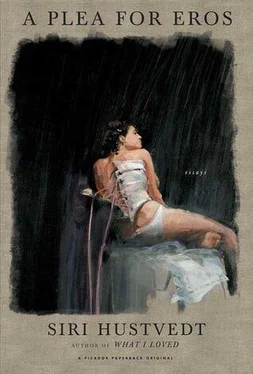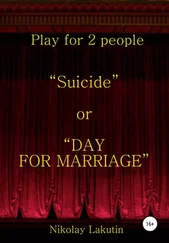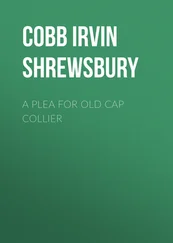It was my mother who sent me off to the library for David Copperfield and Jane Eyre and Wuthering Heights when I was thirteen, and it’s fair to say that to this day I have not recovered from a single one of those novels. That was the summer of 1968, and my family was in Iceland. I cannot think of Reykjavik without the thought that I was David and Jane and Catherine there in that house, where I found it hard to sleep, because the sun never set. I would go to the window and lift the shade in the bedroom and look out into the eerie light that fell over the roofs, not daylight at all, some other light I had never seen before and have never seen since. The otherworldly landscape of Iceland has come to mean story for me. My father took us out into the countryside to the places where the sagas are said to have taken place. The sagas are fiction, but their settings are geographically exact. My father stopped the Volkswagen Bug we had rented; and after all six of us had piled out of that tiny car, and we stood on that treeless ground with its black lava rock and smoking geysers and green lichen, my father showed us where Snorre died. “The axe fell on him here!” And when my father said it, I saw the blood running on the ground. When he wasn’t finding the sites where the heroes had wandered, my father was in the library reading about them. The very idea of a library for me is bound to my mother and father and includes the history of my own metamorphoses through books, fictions that are no less part of me than much of my own history.
Seventy-six years after Uncle David walked off the ship at Ellis Island, I arrived at the airport in New York City. It was early September 1978.1 didn’t know a living soul in the place. My suitcase was heavy, and nobody helped me carry it, something unheard of in Minneapolis. But frankly, even this indifference from New Yorkers didn’t bother me. I had left small-town, rural life for good, and I had no intention of ever returning, not because I didn’t like my home but because I had always known that I would leave. Leaving was part of my life romance, part of an idea I had about myself as a person destined for adventure; and as far as I could tell, adventure lay in the urban wilds of Manhattan, not in the farmland of Minnesota. This was my guiding fiction, and I was determined to make good on it. I had a tiny room in International House, on West 123rd Street at Harlem’s border. My first three days were spent rereading Crime and Punishment in a state that closely resembled fever. I couldn’t sleep, because the noise from traffic, sirens, garbage trucks, and exuberant pedestrians outside my window kept me wide awake all night. I had no friends. Was I happy? I was wildly happy. Sitting on my bed, which took up most of the space in that narrow room, I whispered prayers of thanks that I was really and truly here in New York, beginning another life. I worshipped the place. I feasted on every beautiful inch of it — the crowds, the fruit and vegetable stands, the miles of pavement, the graffiti, even the garbage. All of it sent me into paroxysms of joy. Needless to say, my elation had an irrational cast to it. Had I not arrived laden with ideas of urban paradise, I might have felt bad losing sleep, might have felt lonely and disoriented, but instead I walked around town like a love-struck idiot, inhaling the difference between there and here. I had never seen anything like New York, and its newness held the promise of my future: dense with the experience I craved — romantic, urbane, intellectual. Looking back on that moment, I believe I was saved from disappointment by the nature of my “great expectations.” I honestly wasn’t burdened with conventional notions of finding security or happiness. At that time of my life, even when I was “happy,” it wasn’t because I expected it. That was for characters less romantic than myself. I didn’t expect to be rich, well fed, and kindly treated by all. I wanted to live deeply and fully, to embrace whatever the city held for me, and if this meant a few emotional bruises, even a couple of shocks, if it meant not eating too well or too often, if it meant a whole slew of awful jobs, so be it.
It appears that time has turned that young woman, who imagined herself a romantic heroine, into something of a comic character, but I remain fond of her. We are relatives, after all. Like all the places where I’ve actually lived, New York City is much more than a “context” or “setting” for me. Within weeks of my arrival in New York, I was someone else, not because there had been a revolution in my psychological makeup or any trauma. It was simply this: people saw me in a light in which I had never been seen before. Although I had always felt at home with my parents and sisters, I was never really comfortable with my peers. By the time I found myself in college, my feeling that I was not inside but outside had intensified. There’s no question that I cultivated this to some degree, that I prided myself on my difference, but I confess it hurt and surprised me to be regarded as “strange.” I had friends I loved and teachers I loved, but rumors in which I was variously characterized as wild, monkishly studious, or just plain weird haunted my career as a college student. I recall my father telling me with a smile that one of his students had described me as “very unique.” In New York, this all but ended. Whatever exoticism I may have possessed came from my midwestern sincerity and lack of worldly sophistication. Transformations of the self are related to where you are, and identity is dependent on others. In Minnesota, I felt embattled. I rebelled against a culture that touted “niceness” above truth, that wallowed in an idea of “equality” that had come to mean “sameness” and “intolerance”—not of the sick, dying, ugly, or handicapped but of those who distinguished themselves by talent or beauty or intelligence. The “hoity-toity” were really batted around out there. Pretension wasn’t suffered for an instant, and for a girl who walked around dreaming she was a combination of George Eliot and Nora Charles in The Thin Man, life could be hard. In Minnesota, I lusted after every quality that was in short supply — artifice, irony, flamboyant theatricality, fierce intellectual debate, and brilliantly painted lips.
In New York, “niceness” wasn’t an overriding value, but then neither was “goodness,” a value I frankly and unashamedly clung to for dear life. I had to reorient myself to accommodate a new world. For example, I naively assumed that most people had had some kind of religious education, that religion remained a fact of most people’s lives and provided the ground for moral life. I was startled to discover, however, when we were assigned the first book of the Bible for a literature class, that a majority of my fellow students had never read Genesis. Nevertheless, I wasn’t an “odd duck” in New York, the city that accommodates or ignores all ducks. And despite the harshness of everyday life — the raw, cold, scraping sensation of never leaving the street, because my apartment felt as if it were in the street — I was at home in New York. This feeling of being “home at last” corresponds to my idea about the city, an idea shaped by books, movies, and plays, an idea of infinite possibility.
There is an incident, however, that made me understand what New York is for the people who come here to stay. I had been living in Manhattan for two years. I had met my future husband, and we were invited to a dinner at Westbeth — the housing project in the West Village for artists. I was delighted to be there in that company. I was in love. I was happy without having sought happiness. I vaguely remember wearing something silly, but no one minded. Everyone at the table looked like a marvel to me, but there was one man in particular who shone that night. It seemed to me that he had stepped right out of a Noel Coward play. His jokes were witty, his repartee sharp, and his manner nonchalant. He had written a book on Andy Warhol — no surprise. He was the most urbane creature I had ever laid eyes on. And I laughed and smiled and felt like Miranda: “How beauteous mankind is. O brave new world that has such people in’t.” The conversation wandered, as conversations do, and people began to talk about where they had grown up. Nobody, if I remember correctly, had been born and raised in New York City, and where had my idol sprung from, this divinity of culture and wit? Where had he spent his entire childhood and youth? In Northfield, Minnesota. I hadn’t known him, because he is several years older than I am, but there it was: he and I had grown up in the same small town. New York City is the place where people come to invent, reinvent, or find the room they need to be who they wish to be. It’s a place where fictions run freely and plentifully, where people are allowed a certain pretense about themselves, where cultivating a persona or an idea of how to live is permitted, even encouraged. This is the glory of urban freedom and indifference. It has its drawbacks, of course. One summer I was alone in New York. All my friends had fled the city heat, and I remember thinking, If I died right now in my apartment, how long would it take before anybody noticed?
Читать дальше












